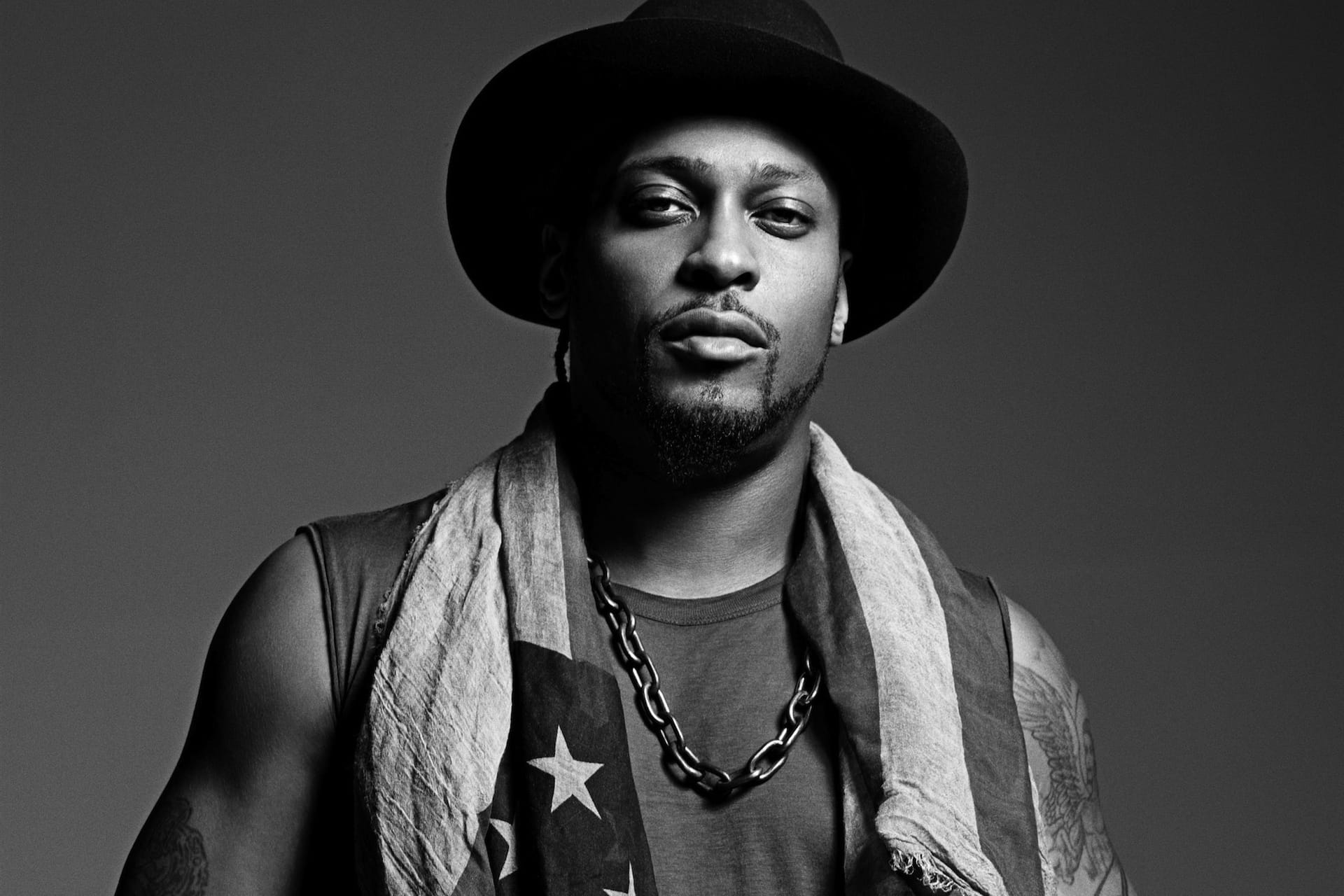Rest In Peace to D'Angelo

A little fun fact about me: Back when I was in high school in the mid to late 90s, I taught myself how to build basic websites. I would basically reverse engineer the source code, breaking things to see what would happen, which helped me learn what the different codes meant.
One of the first websites I published was a fan site to the musician D’Angelo. I’m pretty sure I published it on GeoCities (really dating myself here). I knew next to nothing about copyright laws and so on, as I was just splicing bits of code together to create essentially a thank you to D’Angelo for making music. I figured out how to plug the sound clips of his songs into my site, sourcing them directly from the Columbia Records page. I had tables listing his projects up to that time. For a novice, it was a nicely put-together page made from scrap parts.
The website was also a bit of an eye-opener for me as well, since I learned I better clearly state the page was unofficial, as I would get numerous emails from women swooning over the man. Sorry, just a kid in Nebraska who was a fan just like you.
D’Angelo is honestly a top-two singer for me. Sure, there are people with those golden voices like Luther Vandross, Donny Hathaway, and others. But for me, it was always Prince and D’Angelo. And yeah, D was clearly influenced by Prince, Sly Stone, and a whole lineage of funk and gospel, but what drew me in was the totality of his artistry. He could sing, write, produce, and play. The man could sit down at a keyboard, pick up a guitar, or lock in on drums. He was the reason I wanted to learn piano when I was young (something I still haven’t followed through on). His multifaceted talent — that ability to create worlds entirely his own — was magnetic.
He released his debut album Brown Sugar in 1995. That record sparked much of the neo-soul movement of the ’90s, alongside artists like Erykah Badu and Maxwell, and even influenced the sound of hip-hop groups like The Roots. There was a warmth to that album — the kind that comes from real musicians playing real instruments — a sound that felt like sunlight through curtains. It stood in contrast to the shiny, programmed grooves of the New Jack Swing era just a few years before.
Five years later came Voodoo, one of the pillar releases of the Soulquarians era. D’Angelo, Erykah Badu, The Roots, Common, J Dilla, and others spent years holed up in Electric Lady Studios in New York City, making music that didn’t fit any box. Voodoo remains one of my favorite albums ever — dense, spiritual, and alive. The first time I heard “Spanish Joint,” I remember stopping what I was doing. The groove wasn’t just played; it breathed. Every song felt like it was growing right in front of you.
Then came the long silence — fourteen years before Black Messiah arrived in 2014. That album was raw, layered, and fearless — a piece of art that felt both ancient and immediate. It drew comparisons to Sly & the Family Stone’s There’s a Riot Goin’ On, and for good reason. It wasn’t just a comeback album; it was D’Angelo reclaiming himself. Behind the music was a man who had battled alcohol addiction, an arrest for cannabis possession, and the loss of a close friend to suicide. And still, he came back with something honest, heavy, and healing.
Black Messiah also felt like a statement to the times. It landed amid national protests and cultural unrest, and somehow captured that energy without ever preaching. It was spiritual protest music — the kind that moves you from the inside out.
D’Angelo passed away this morning after a private battle with pancreatic cancer. I am heartbroken, as I’m sure many family, friends, and fans are. My thoughts are with his children and everyone who loved him.
It’s strange losing someone who shaped the soundtrack of your life. For me, his music was tied to discovery — learning code, finding community, figuring out what creativity could look like. D’Angelo taught me that art doesn’t have to be perfect; it just has to be real. Whether you’re layering harmonies in a studio or breaking HTML to see what happens, creation starts with curiosity.